Smackdown: AP Bio vs. AP Chem
A view of each advanced placement science course
Photo by Anson Zhou
The face-off
Let’s be real, if you took an AP science course before you would know that there is a lot of work that goes along with it. For those of you that have never took an AP science course before and is undecided about which one to take, both AP Biology and AP Chemistry are equally invigorating courses that might peak your interests. You’ve probably heard stories from past students of the “horrific” piles of homework, the late nights, and having to self study entire units by yourself. Although these experiences deserve some merit, you should definitely consider enrolling in these two excellent courses during your high school career. Below are some professional opinions that can help advise you while choosing your next AP science course:
AP Biology: Dr. Gatz & Mrs. Vollaro
R&B: What inspired you to teach this course?
Dr. Gatz: Going back to the early days of science in middle school, I loved learning about how the human body worked. As I advanced through my academic career, this morphed into understanding how the body performs with exercise, with pathology of disease, and now into mechanisms regarding cognition and learning. Teaching the intricacies of physiological mechanisms behind structure and function of organisms allows for an understanding of what, why, and how life operates. I find this inspiring daily!
Mrs. Vollaro: My love for science and wanting to share that same love and excitement
with my students. A main inspiration was also the teacher I had in AP Biology. He was
an amazing educator, and really propelled me further in my interest to be a Biology major in college. I always admired him and wanted to have the same impact on my students lives as he had on mine.
R&B: What aspect of this course do you find is most appealing or beneficial to high school students?
Dr. Gatz: The best part about AP Biology is how the science practices are built into the course. Students are learning how data is analyzed from a biological and statistical perspective to solve complex, multifactorial problems in the same way a scientist does. The curriculum builds concepts from the atom through organ and ecological systems to help students connect the overarching themes for the diversity and unity of life.
Mrs. Vollaro: I believe the most appealing aspect to high school students is how much of the curriculum they can relate to. There are so many topics that students learn that they can connect with their own bodies and even relate to the world around them. The major benefit I hope, is that they leave with a broader understanding of how the body works at every level.
R&B: How can this course be applied to everyday life?
Dr. Gatz: Bio = life. Understanding levels of organization for living organisms is important to keeping individuals and communities of humans that interact with the environment healthy and productive.
Mrs. Vollaro: Most of what is learned in AP Biology can be applied to everyday life because much of what is learned is related to how the body works from a molecular level to a system level. In addition, those concepts can be connected to an overall understanding of the changes in the world around us.
R&B: Can you comment on the level of difficulty of the course?
Dr. Gatz: AP Biology is a challenging course, and it is equivalent to Biology 101 given in the fall semester of freshman year of college for science majors. As such, content is covered in more depth and greater expectations are placed on interpretation and analysis of data. In addition, statistical analysis of data and modeling concepts are taught and used in the interpretation of experiments you design. A significant amount of studying must be completed at home to allow time for discussion, labs, and inquiry during class time. The AP Biology curriculum encompasses 4 Big Ideas with Essential Knowledge and Process Skills that support each one.
Mrs. Vollaro: AP Biology is difficult, some topics more than others, but if students keep up with the assignments, come to extra help and study they will do very well. There are lab write-ups that take up some time outside of the classroom, but if students do not procrastinate they will be able to be successful. The workload is definitely manageable, and not meant to overwhelm students. Extra credit is given often to increase overall averages.
R&B: How well does this course prepare you for the collegiate curriculum?
Dr. Gatz: Extremely well. Each fall I receive thank you notes from recent graduates because they are so well prepared and successful in their college biology classes and science majors. Two of my former students are now going on to graduate work in genetics, it is the ultimate compliment to receive a note or a visit from recent high school and college grads because this class inspired them to delve deeper into the biological sciences in college.
Mrs. Vollaro: This course prepares students extremely well for college. Many of my students who are Biology majors email me thanking me for everything they learned in this class. This class includes all topics and concepts that are covered in an introductory Biology class in college, and gives students the background information they will lead for further classes in the Biology field.
AP Chemistry: Ms. Hanley & Mr. Daugherty
R&B: What inspired you to teach this course?
Ms. Hanley and Mr. Daugherty: What inspired us to teach this course is our love for chemistry and our life of science.
R&B: What aspect of this course do you find is most appealing or beneficial to high school students?
Ms. Hanley and Mr. Daugherty: AP Chemistry is filled with higher level thinking problems that will be challenging for most students. It allows students to develop problem solving skills and studying skills that they may not have developed in the lower level classes. One of the most appealing parts of the course is the real world application of AP Chemistry. The course is appealing to students when they can apply the content they are learning to their everyday life.
R&B: How can this course be applied to everyday life?
Ms. Hanley and Mr. Daugherty: Chemistry is matter, and matter is everything around us. Chemistry allows us to take the macroscopic world we live in and understand the microscopic parts of what we are observing. Why do tires lose air more during the winter than the summer? How does the combustion of gasoline provide energy for my car to run? Why do we keep hydrogen peroxide in a dark bottle instead of clear? These are some examples of questions students can now answer since they learned and understand the basics of chemistry.
R&B: Can you comment on the level of difficulty of the course?
Ms. Hanley and Mr. Daugherty: It really depends on the individual. Overall, you need to put effort into the course outside of classroom time. You also need to be able to self-assess yourself and when you are struggling to make a strong effort to attend extra help.
R&B: How well does this course prepare you for the collegiate curriculum?
Ms. Hanley and Mr. Daugherty: While all colleges differ, we believe students should feel well prepared to take a general college chemistry course.
Below are student perspectives on the different AP science courses that will provide even more insight on the class you plan on taking, in addition to some helpful advice for those who will be taking the course next year:
AP Biology:
- KNOW YOUR CONCEPTS! Everything ties back to evolution, which is more than likely the first topic you will be taught. Know why certain species have a genetic advantage and be able to tie that advantage to the species’ evolutionary past.
- Although they are not required, making flashcards of key terms would be very helpful. The AP exam is very term oriented and having a set of personal flashcards to study from would be very beneficial.
- Do not be afraid to answer a question. Biology is very complex and organized but it does allow for creative freedom. When it comes to a written response or even an essay (yes, there are essays) do not be afraid to answer the question or prompt. Sometimes the answer may be very simple but you need to be able to tackle the prompt and allow your creativity and knowledge to flow.
AP Chemistry:
- With no doubt, AP Chemistry is a very challenging course, but the workload is surprisingly manageable – probably more so than AP Biology. In general, homework mostly consists of practice problems from the textbook or worksheets.
- It is VERY math heavy. With no doubt, a solid foundation in algebra is needed in conjunction with familiarity with mental math. Keep in mind that Part 1 of the AP Chemistry exam (the multiple choice) does NOT allow a calculator!
- After the AP tests are done, there are a plethora of fun labs you can do- slime, ice cream, shrinky-dinks amongst others. The principles of chemistry are able to explain so many reactions that we induce in order to create the everyday appliances we use, all of which you will be learning about in this course!
Both AP Science courses offer a mixture of challenge and a rigorous curriculum that you can not only apply to your life, but enjoy while doing so. These courses are not only designed to prepare students for college, but they foster students to become critical thinkers that are creative and intuitive. Moreover, these characteristics are accentuated by the diligent, dependable, brilliant, and caring teachers that teach these courses. Dr. Gatz, Ms. Vollaro, Ms. Hanley, and Mr. Daugherty are each superb teachers that will wholeheartedly dedicate their time to make sure you are prepared for the AP test, while also creating a comfortable and friendly environment for you to excel. Perhaps you may still be undecided, but choosing to take either course would be just as rewarding as the other!

Grade 12
“We keeping moving forward, opening new doors, and doing new things, because we’re curious and curiosity keeps leading us down new paths.”...

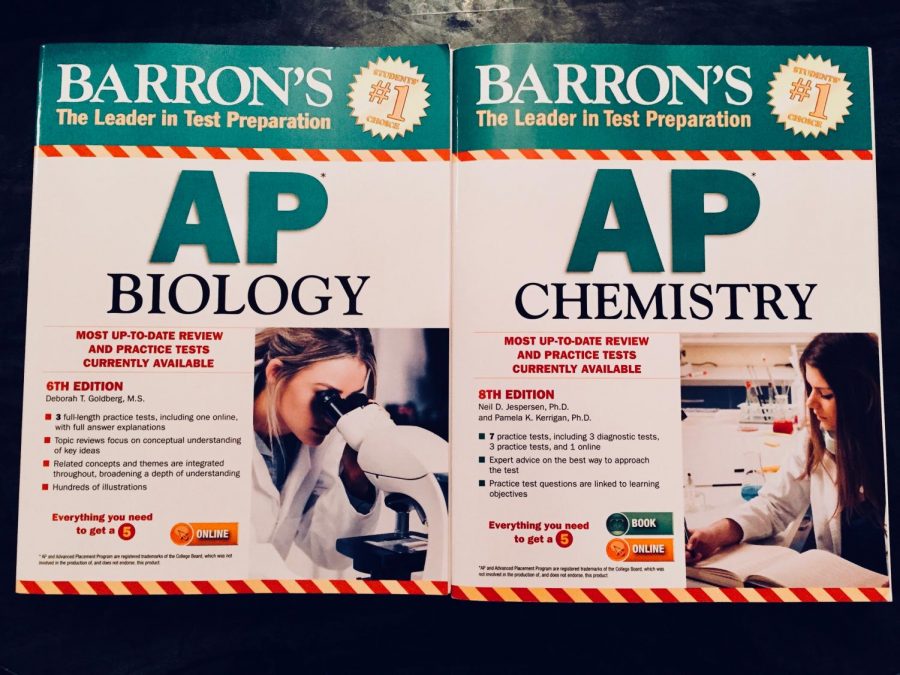


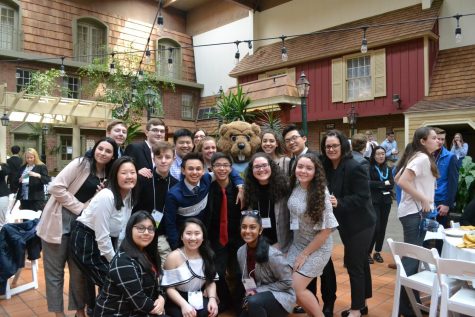
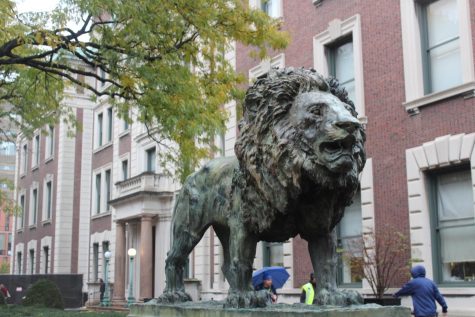

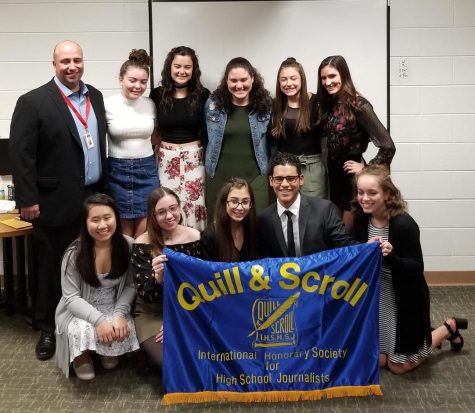

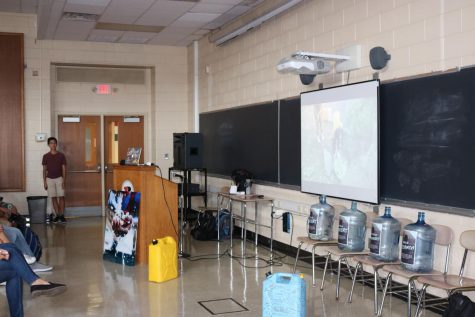




Delaney Reh • Sep 6, 2018 at 10:28 am
interesting article!!!!!!!!